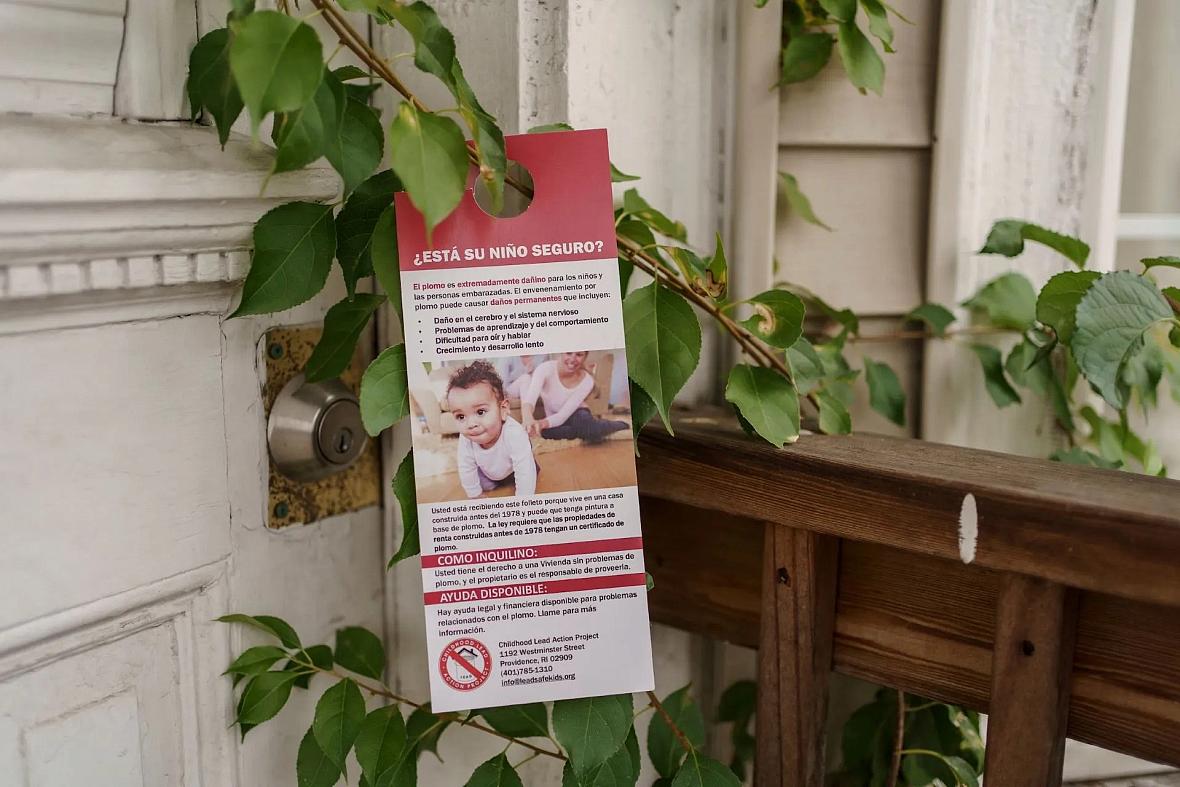Concerned about lead paint in your home? Here are some places to look for help.
The story was originally published in The Public's Radio with support from our 2023 National Fellowship.

The Childhood Lead Action Project canvasses neighborhoods to alert tenants and homeowners about their rights and responsibilities.
Jodi Hilton for The Public's Radio
Most of the housing stock in Rhode Island was built before 1978, which means it likely contains lead-based paint. That’s dangerous for children, who can experience life–long consequences if they’re exposed to lead paint. Our series Renters at Risk explores what this means to Rhode Islanders.
Getting rid of lead paint entirely is expensive. Instead, Rhode Island requires that landlords hire licensed lead inspectors to ensure their rental units are lead-safe. Estimates from the think tank HousingWorksRI show the vast majority of rental housing units lack the legally required lead certificates.
The good news is there are several resources to help tenants, landlords, and contractors deal with lead paint in homes.
For tenants:
You can check to see if your home has a lead safe certificate through the state health department database. If a unit doesn’t show up, that likely means it doesn’t have a lead certificate. And remember: landlords are required to disclose lead hazards to tenants when they sign a lease.
You can also file complaints with the state health department if you think there are lead hazards in your home — or if you notice renovation work that looks like it might be unsafe. You can also call your municipal code enforcement office with concerns about lead paint and other maintenance issues.
A lot of lead exposure comes from old paint on doors and windows, where friction can turn that paint into dust. So pay particular attention if your apartment has paint peeling or chipping in these areas. The EPA also has guidance for specific ways to clean if you think there might be lead hazards at home.
The Childhood Lead Action Project can help renters dealing with potentially unsafe conditions.
And if you’re facing housing insecurity, the Rhode Island Center for Justice and Rhode Island Legal Services can provide free legal assistance.
For property owners:
Three local agencies provide forgivable loans or grants to cover the costs of lead abatement in rental housing: Rhode Island Housing, Providence, and Woonsocket. Properties have to be built before 1978 and there are income-restrictions. The federally-funded programs require tenants make 80% or less of area median income. State-funded programs are less restrictive.
It can be dangerous to disturb old lead paint, so get to know the specific requirements for doing renovation or repair work. In many circumstances, that requires hiring a licensed professional or going through a lead-safe work-practices training yourself.
The health department also maintains a list of licensed lead inspectors and lead repair contractors. And the Childhood Lead Action Project runs lead hazard awareness seminars for landlords. Rhode Island Housing and the city of Providence both help train contractors to work safely with lead paint.

